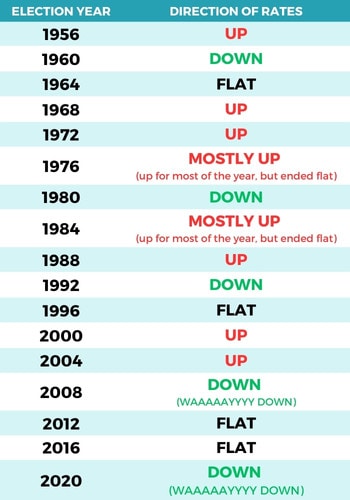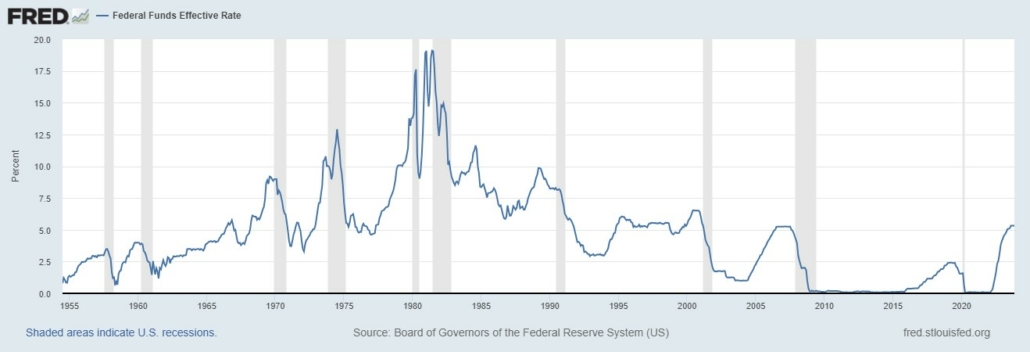

Rates Do Not Fall In Election Years- It’s A Myth – Until Now?

Whenever we are in or near an election year, I hear everyone, including my dogs Steve and Mike, say that “rates will fall because it is an election year…”
Steve and Mike can be forgiven of course because they are Bernedoodles and they’re not very smart AND they have great difficulty googling (furry paws make typing really difficult).
But everyone else? I can no longer forgive them because it is so easy to look at the data and see that rates not only DO NOT always fall in election years, but they are more likely to rise or hold steady.
I should note here, before anyone feels too insulted, that I too believed the myth for years until I read a blog similar to this one years ago.
The Fed was set up as an entirely independent body, operating outside of politics – and the data indicates that they have done a decent job of maintaining that independence.
I set out that data below. But, at the bottom of this blog, I will explain why I think the Fed has lost that independence and why the “rates fall in an election year” crowd may finally be right.
The chart at the bottom of the blog shows the Fed Funds Rate history going back to 1955 – and the table below shows whether rates went up or down or stayed steady during election years.

In other words, over the last 17 election years, rates fell less than 30% of the time (5 out of 17).
To the Fed’s credit, it looks very much like they were responding to economic conditions as opposed to political concerns.
So – What’s Different Now; Has the Fed Lost Its Independence?
What is different now is that everything is much more political and polarized – and everyone seems to be choosing sides, no matter how independent they’re supposed to be.
This of course includes the Fed, and it would appear that the Fed Chair and the Fed governors are more aligned with the current administration than a potential GOP administration.
If that is the case, it is much more likely that the Fed will drop rates next year in an effort to boost the economy in an effort to keep the current administration in power.
I might add that this is not just the conjecture of a mortgage guy, but it is something I have been hearing and reading frequently lately – including on this MacroVoices podcast yesterday.





Comments